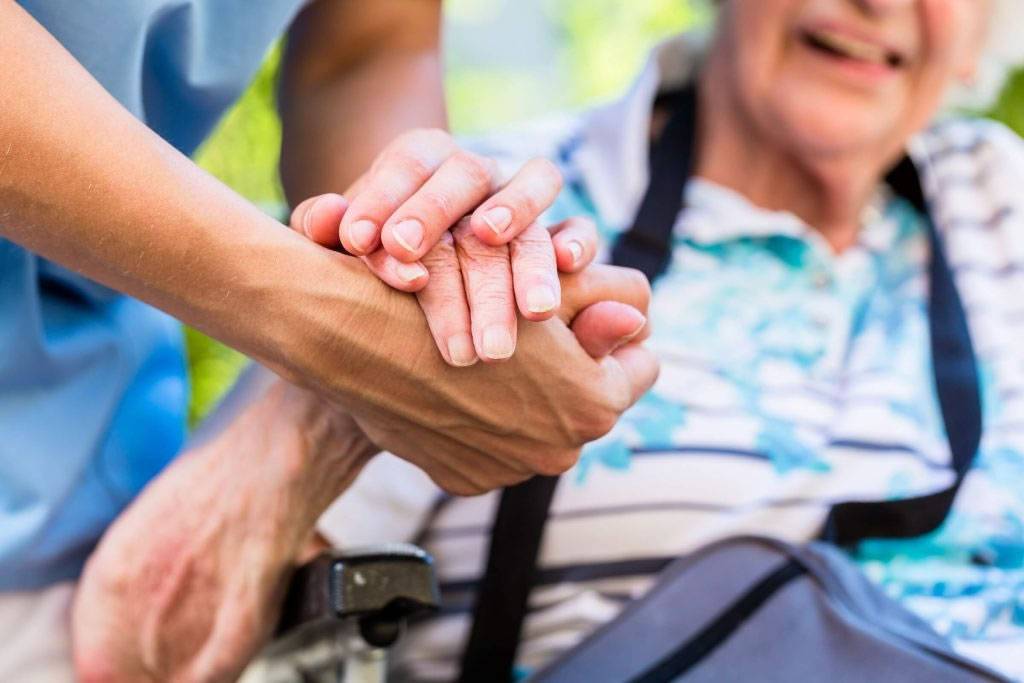Ensuring Quality Elderly Care at Home in the Canary Islands
- 19-01-2024
- Travel
- Canarian Weekly
- Photo Credit: Pexels
The scenic beauty and warm climate of the Canary Islands make it a popular destination for retirees seeking a peaceful and comfortable life. As the islands witness a growing population of seniors, ensuring quality elderly care at home becomes a priority. This comprehensive guide explores the key strategies and resources available to guarantee a supportive and nurturing environment for the elderly population in the archipelago.
Why Home Healthcare Is Important?
Home healthcare offers numerous advantages for individuals who require medical attention or assistance with daily activities but prefer to receive care in the comfort of their own homes. Here are some key advantages of home healthcare:
Comfort and Familiarity:
Patients can receive care in a familiar and comfortable environment, reducing stress and promoting healthcare. Being surrounded by personal belongings, family, and pets contributes to a positive emotional state.
Personalised and Individualised Care:
Home healthcare plans are tailored to the specific needs of the individual, ensuring a personalised approach to treatment and support. Caregivers can adapt to the patient's routine, preferences, and cultural considerations.
Enhanced Quality of Life:
Home healthcare allows individuals to maintain a higher level of independence and autonomy. Patients can engage in daily activities, hobbies, and social interactions that contribute to a better quality of life.
Faster Recovery:
Studies have shown that patients often recover more quickly at home compared to a hospital setting, possibly due to reduced exposure to hospital-acquired infections. Home environments can promote a sense of security, leading to a more positive mindset for recovery.
Reduced Hospital Readmissions:
Home healthcare helps prevent unnecessary hospital readmissions by providing ongoing care and monitoring. Continuous monitoring and preventive measures can address issues before they escalate, reducing the likelihood of emergencies.
Cost-Effectiveness:
Home healthcare is often more cost-effective than prolonged hospital stays or institutional care. Patients may require fewer hospital visits, and the overall cost of home healthcare can be lower, especially when considering the avoidance of hospital-associated expenses.
Convenience and Flexibility:
Home healthcare provides flexibility in scheduling, allowing patients to receive care at times that suit their routines. Families and caregivers also benefit from the convenience of healthcare professionals coming to the patient's home.
Family Involvement and Support:
Family members can actively participate in the care process, fostering a strong support system. Caregivers can educate family members on providing effective care, making the home a collaborative care environment.
Decreased Risk of Infections:
Home environments generally have fewer exposure risks to infectious agents compared to healthcare facilities. Minimising the risk of infections contributes to better overall health outcomes, particularly for individuals with compromised immune systems.
How To Ensure Quality Elderly Home HealthCare?
Ever wonder what it would be like to receive top-notch healthcare without leaving the comfort of your own home? Forget the sterile, clinical vibe – we're talking about healthcare that comes to you, right where you feel most at ease. Let’s discuss how you can provide home healthcare to your loved ones.
1. Consult With Healthcare Experts
Begin by conducting a thorough assessment of the elderly individual's healthcare needs. Collaborate with healthcare professionals, including physicians, nurses, and physical therapists, to identify specific requirements. This may include evaluating medical conditions, mobility issues, cognitive health, and assistance needed for daily activities. This assessment lays the foundation for tailoring a personalised care plan that addresses all aspects of the individual's well-being.
2. Professional Caregiver Services
Engage professional caregiver services to provide round-the-clock or scheduled assistance. Trained caregivers offer not only medical support but also companionship and emotional care. Ensure that caregivers are experienced in handling the unique requirements of elderly individuals, including administering medications, managing chronic conditions, and responding to emergencies.
3. Implement Technology for Remote Monitoring
Leverage technology to enhance care services. Install remote monitoring devices that can track vital signs, activities of daily living, and medication adherence. These devices can alert caregivers or healthcare professionals in case of deviations from normal parameters, providing an additional layer of safety and peace of mind for both the elderly individual and their families.
4. Access to Specialised Medical Equipment
For those with mobility challenges or specific health conditions, providing access to specialised medical equipment is crucial. Opt for reputable hospital bed rentals that offer a range of options to accommodate various needs. Whether it's a fully adjustable electric bed for individuals with mobility issues or a hospital bed with pressure-relieving features for those at risk of bedsores, these services provide flexibility and affordability without compromising on quality.
5. Personalised Nutrition Plans
Work with nutritionists to develop personalised meal plans that cater to the specific dietary needs of the elderly. Consider factors such as allergies, dietary restrictions, and preferences when designing meal plans. Regularly review and adjust these plans to accommodate changes in health conditions or nutritional requirements.
6. Promote Physical Activity and Mental Stimulation
Encourage physical activity tailored to the individual's capabilities. Collaborate with physiotherapists to design exercises that improve strength, flexibility, and overall well-being. Simple activities like walks, chair exercises, or gardening can contribute significantly. Additionally, engage in activities that stimulate mental health, such as puzzles, reading, or participation in community events.
7. Cultural Sensitivity and Social Engagement
Respect cultural nuances and preferences in the provision of care. Create opportunities for social engagement that align with the elderly individual's cultural background. This could involve participating in community events, social clubs, or religious activities. Establish connections with local cultural organisations to ensure that care plans are culturally sensitive and inclusive.
8. Provide Emotional Support for Family Caregivers
Acknowledge the emotional challenges that family caregivers may face. Offer support services, counselling, or respite care to alleviate caregiver stress and prevent burnout. A well-supported caregiver ensures a more stable and nurturing environment for the elderly individual. Consider organising support groups or educational sessions for caregivers to share experiences and strategies.
Conclusion
Ensuring quality elderly care at home in the Canary Islands involves a multi-faceted approach that addresses medical, emotional, and cultural needs. By implementing a personalised care plan, integrating technology, promoting physical and mental well-being, and engaging with professional caregivers and reputable hospital bed rental services, the Canary Islands can create a model for comprehensive and compassionate elderly care at home. This not only enhances the quality of life for the elderly but also contributes to a more caring and inclusive community.
Other articles that may interest you...
Trending
Most Read Articles
Featured Videos
TributoFest: Michael Buble promo 14.02.2026
- 30-01-2026
TEAs 2025 Highlights
- 17-11-2025































































